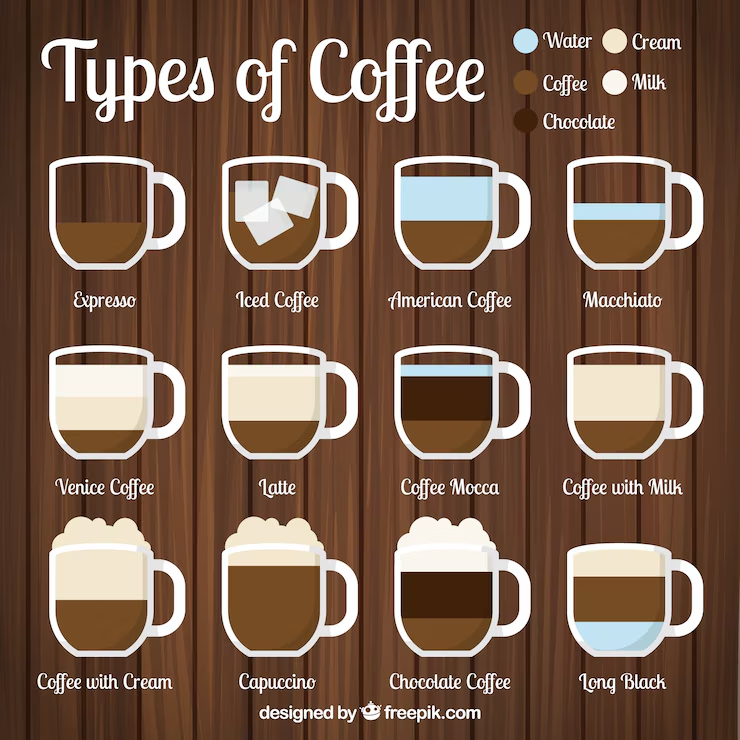Coffee diet for weight loss is gaining popularity as more people explore natural ways to enhance fat-burning. Coffee, when consumed strategically, can boost metabolism, increase energy levels, and support appetite control—all of which are vital for successful weight management.
The key behind the coffee diet for weight loss lies in its caffeine content. Caffeine stimulates thermogenesis, the process of heat production in the body, which helps burn more calories even at rest. Additionally, drinking black coffee before a workout can enhance physical performance, allowing you to burn more fat during exercise.
However, the coffee diet for weight loss should be approached with balance. It emphasizes drinking black coffee (no sugar or cream) while following a clean, calorie-controlled diet rich in whole foods. Overconsumption of coffee can lead to insomnia, jitteriness, or digestive issues, so moderation is key. When done correctly, it can be a simple and effective addition to a weight loss routine.
If you’re wondering whether the coffee diet is the real deal or just another fad, this detailed guide will break down what the coffee diet is, how it works, and how to use it safely and effectively. Plus, you’ll get the top 8 tips to make your coffee diet journey successful.

What is the Coffee Diet ?
The coffee diet for weight loss became a hot trend after the release of Dr. Bob Arnot’s book The Coffee Lover’s Diet in 2017. The core idea is to drink several cups of black coffee throughout the day—specifically high-quality, organic brews rich in antioxidants—while also following a clean, calorie-controlled diet.
According to Arnot, coffee not only boosts metabolism but also suppresses appetite and enhances fat burning. The caffeine stimulates thermogenesis, which increases the number of calories your body burns at rest. This makes the coffee diet for weight loss an attractive option for those seeking a simple, accessible boost to their fat-loss journey.
Another key element of the diet is maintaining a mostly plant-based eating pattern. This means loading your meals with vegetables, legumes, and whole grains, while avoiding processed foods and excess sugar. Combined with coffee’s metabolism-enhancing properties, this diet promotes sustainable weight loss.
However, like any dietary approach, the coffee diet for weight loss must be done in moderation. Too much caffeine can lead to jitters, insomnia, or digestive discomfort, so it’s essential to find your personal tolerance and stick to it.
☕ Core Principles of the Coffee Diet for Weight Loss
Drink 3 to 5 cups of black coffee daily—no sugar or cream.
Choose light-roast, antioxidant-rich coffee for maximum health benefits.
Replace one meal with a coffee-based smoothie.
Eat a diet rich in vegetables, lean protein, fruits, and whole grains.
Eliminate processed foods, sugary snacks, and trans fats.
When followed correctly, the coffee diet for weight loss can rev up your metabolism, reduce cravings, and support sustainable fat loss.
How Does Coffee Help with Weight Loss ?
🔥 How the Coffee Diet for Weight Loss Works: 5 Powerful Benefits
Boosts Metabolism for Faster Calorie Burn
One of the core benefits of the coffee diet for weight loss is its impact on metabolism. Caffeine, the active compound in coffee, stimulates thermogenesis—your body’s natural heat-producing process. This, in turn, increases your resting metabolic rate (RMR), allowing you to burn more calories even when you’re not exercising. A higher metabolism means your body becomes more efficient at using fat as fuel throughout the day.
Enhances Physical Performance During Exercise
The coffee diet for weight loss can amplify your workouts. Caffeine increases adrenaline levels, which enhances physical endurance and energy output. When consumed before exercise, coffee helps improve stamina, allowing you to push harder during workouts. The result? More calories burned and greater fat loss over time.
Suppresses Appetite and Reduces Cravings
Another major reason the coffee diet for weight loss works for many is its natural appetite-suppressing effect. Drinking black coffee before meals may reduce hunger signals, helping you consume fewer calories throughout the day. This can be especially helpful if you’re practicing intermittent fasting or aiming to reduce portion sizes.
Accelerates Fat Breakdown (Lipolysis)
Caffeine plays a direct role in fat mobilization. It stimulates the nervous system to release fat from fat tissues into the bloodstream—a process called lipolysis. Once released, these fatty acids can be burned for energy. This mechanism makes the coffee diet for weight loss particularly effective at targeting stubborn fat when combined with regular physical activity.
Packed with Antioxidants for Metabolic Health
High-quality, light-roast coffee is rich in antioxidants like chlorogenic acid and polyphenols. These compounds help reduce inflammation, stabilize blood sugar levels, and support healthy digestion—all essential components of effective weight loss. By including antioxidant-rich coffee in your daily routine, the coffee diet for weight loss not only helps burn fat but also promotes overall wellness.
Top Tips for a Successful Coffee Diet for Weight Loss
Choose the Right Type of Coffee
When following the coffee diet for weight loss, the type of coffee you choose matters. Opt for light or medium roast coffee, as it contains higher levels of chlorogenic acid — a powerful antioxidant known to support fat metabolism and blood sugar regulation. Dark roasts may taste richer, but they lose more of these beneficial compounds during the roasting process.

For best results, go for organic, single-origin beans. These are typically higher in quality, free from pesticides, and offer a cleaner, more robust antioxidant profile. Avoid instant coffee or heavily processed blends, as they often contain additives or artificial flavors that can counteract your weight loss goals.
Always brew your coffee fresh and drink it black or with minimal unsweetened plant-based milk. Skip the sugar, creamers, or flavored syrups. Sticking to pure, clean coffee ensures you’re getting the full benefits of the coffee diet for weight loss without adding extra calories or chemicals.
All coffee is not created equal. For the coffee diet to be effective:
Opt for light roast or medium roast coffees. These retain more chlorogenic acid, an antioxidant linked to fat metabolism.
Choose organic coffee to avoid pesticide residue.
Try single-origin coffee for better quality and richer antioxidant profiles.
Avoid: Sugary lattes, instant coffee with additives, or heavily processed coffee creamers.
Ditch the Sugar and Cream
When it comes to the coffee diet for weight loss, how you prepare your coffee is just as important as which beans you use. Adding sugar, cream, or flavored syrups can quickly turn your zero-calorie beverage into a high-calorie indulgence. Even so-called “healthy” sweeteners like honey or agave can spike your blood sugar and interfere with fat burning.
To stay in a calorie deficit and maximize the metabolism-boosting benefits of coffee, drink it black. If black coffee is too strong for your taste, a splash of unsweetened almond milk or oat milk is a better alternative. These options add minimal calories while still keeping your drink creamy and satisfying.
For those who need a little sweetness, natural zero-calorie sweeteners like stevia or monk fruit can be used sparingly. By keeping your coffee clean and low-calorie, you’ll get the most out of the coffee diet for weight loss while avoiding unwanted sugar crashes.
Adding sugar and cream not only adds calories but also defeats the purpose of a coffee diet. Even “healthy” alternatives like honey or flavored creamers can sabotage your calorie deficit.
Drink your coffee black, or add a splash of unsweetened almond milk if needed.
You can also use stevia or monk fruit sweeteners if you absolutely need a bit of sweetness.
Time Your Coffee Intake Wisely
Timing is everything when following the coffee diet for weight loss. Drinking coffee first thing in the morning can help kickstart your metabolism and reduce hunger, setting a positive tone for the rest of your day. A cup of black coffee about 30 minutes after waking can also improve focus and energy levels, making it easier to stick to your meal plan and daily goals.

Pre-workout coffee is another powerful tool. Having a cup of black coffee 30–60 minutes before exercising can enhance performance, stamina, and calorie burn. Caffeine increases adrenaline levels, which helps your body tap into fat stores more efficiently during physical activity, making the coffee diet for weight loss even more effective.
Avoid drinking coffee late in the day, especially after 2–3 PM, as it can interfere with sleep. Poor sleep can sabotage weight loss by increasing hunger hormones. Smart timing keeps your body energized without disrupting your natural rhythm.
Drinking coffee at the right times can enhance its benefits:
Morning coffee: Boosts metabolism and helps with morning hunger.
Pre-workout: Have a cup of coffee 30–60 minutes before exercise for better performance and fat burn.
Before meals: Can help suppress appetite and reduce total calorie intake.
Avoid coffee after 2–3 PM to prevent sleep disturbances.
Pair Coffee with a Clean Eating Plan
For the coffee diet for weight loss to work effectively, it must be paired with a clean, balanced eating plan. Relying on coffee alone won’t deliver sustainable fat loss. Instead, combine your coffee intake with whole foods rich in fiber, lean protein, and healthy fats. This supports steady energy, curbs cravings, and fuels your body with essential nutrients.
Focus on eating fresh vegetables, low-sugar fruits, whole grains like oats or quinoa, and lean proteins such as chicken, fish, or tofu. Incorporate healthy fats from avocado, nuts, and olive oil to keep you full and satisfied throughout the day. Avoid processed foods, refined carbs, sugary snacks, and fried items that can slow progress.
A clean diet stabilizes blood sugar and enhances the appetite-suppressing benefits of coffee. When you combine quality nutrition with strategic caffeine use, the coffee diet for weight loss becomes a powerful, results-driven approach that supports both fat burning and overall wellness.
Coffee alone won’t make you lose weight. Your diet still matters—a lot. Follow a nutrient-dense plan that includes:
Leafy greens, cruciferous vegetables
Berries and low-sugar fruits
Whole grains like quinoa, oats, and brown rice
Lean proteins (chicken, tofu, legumes)
Healthy fats (avocado, nuts, olive oil)
Avoid processed snacks, sugary drinks, refined carbs, and fried foods.
Drink at least 8–10 glasses of water daily.
For every cup of coffee, drink a glass of water.
Consider adding electrolytes if you experience fatigue or headaches.
Stay Hydrated
Staying hydrated is essential when following the coffee diet for weight loss. While coffee can help boost metabolism and suppress appetite, it also acts as a mild diuretic, which means it may increase fluid loss. To avoid dehydration, it’s important to drink plenty of water throughout the day alongside your coffee intake.
Aim to drink at least 8–10 glasses of water daily. A good rule of thumb is to have one glass of water for every cup of coffee you consume. This helps maintain your body’s fluid balance, supports digestion, and reduces the chances of fatigue or headaches—common side effects of dehydration during any diet.
You can also enhance hydration by including herbal teas or drinks rich in electrolytes, especially if you’re combining the coffee diet for weight loss with exercise or intermittent fasting. Staying properly hydrated boosts energy, keeps your metabolism running smoothly, and maximizes your weight loss results.
Coffee is a mild diuretic, which means it can lead to fluid loss. To stay hydrated:
Drink at least 8–10 glasses of water daily.
For every cup of coffee, drink a glass of water.
Consider adding electrolytes if you experience fatigue or headaches.
Try Intermittent Fasting with Coffee
Combining intermittent fasting with the coffee diet for weight loss can significantly enhance fat-burning results. During fasting hours, black coffee can be a powerful ally—it helps suppress appetite, keeps energy levels steady, and boosts mental clarity without adding any calories.
Drinking coffee while fasting may also increase ketone production, which supports fat metabolism. Consuming black coffee in the morning or between fasting windows can help reduce hunger pangs, making it easier to stick to your eating schedule. This pairing works especially well with a 16:8 fasting method, where you fast for 16 hours and eat within an 8-hour window.
Just be cautious not to overconsume caffeine, especially on an empty stomach. Stick to 2–4 cups per day and avoid adding sugar or cream, which could break your fast. Used wisely, the combination of intermittent fasting and the coffee diet for weight loss can accelerate fat loss and improve overall health.
Combining coffee with intermittent fasting (IF) can enhance fat loss. During the fasting window (e.g., 16 hours), black coffee can:
Suppress hunger
Boost ketone production
Increase fat oxidation
This combo can accelerate weight loss results if done correctly and safely.
Watch Your Caffeine Intake
Monitoring your caffeine intake is essential when following the coffee diet for weight loss. While coffee offers metabolism-boosting and appetite-suppressing benefits, too much caffeine can lead to side effects like anxiety, insomnia, digestive issues, and increased heart rate. Moderation is key to reaping the benefits without compromising your health.

Experts recommend limiting caffeine to 300–400 mg per day—equivalent to about 3 to 4 standard cups of brewed coffee. If you’re sensitive to caffeine, consider switching to decaf after your second cup or choosing a lighter roast with slightly less caffeine content. Always listen to your body and adjust accordingly.
Spreading your coffee throughout the day helps avoid sudden energy crashes or sleep disturbances. Avoid coffee after 2–3 PM to protect your sleep quality, which plays a crucial role in weight management. Staying within healthy limits ensures that the coffee diet for weight loss remains safe, effective, and sustainable in the long run.
Too much caffeine can lead to:
Anxiety and jitteriness
Increased heart rate
Insomnia
Digestive issues
Stick to 300–400 mg of caffeine per day, which is about 3–4 standard cups of coffee.
Exercise Regularly
Exercise is a key component of any effective weight loss strategy, including the coffee diet for weight loss. While coffee helps boost metabolism and increase energy, physical activity ensures you burn more calories and preserve lean muscle mass. The combination of caffeine and exercise can amplify fat loss when done consistently.
Drinking coffee 30–60 minutes before a workout can improve performance, stamina, and focus. Caffeine increases adrenaline levels, which allows you to push harder during strength training or cardio sessions. This makes each workout more efficient and enhances the calorie-burning process, especially during high-intensity interval training (HIIT).
Aim for a balanced fitness routine that includes strength training three times a week and cardio 4–5 times. Even light daily movement like walking, stretching, or cycling supports the benefits of the coffee diet for weight loss. Exercise and coffee together create a powerful fat-burning synergy that accelerates results while improving your overall health and mood.
Coffee can increase your stamina and energy for workouts, but movement is non-negotiable for weight loss. Combine the coffee diet with:
Strength training (3x/week)
Cardio (walking, jogging, or cycling 4–5x/week)
HIIT workouts if your fitness level allows
Even light activity paired with caffeine can significantly increase daily calorie burn.
Sample Daily Meal Plan on the Coffee Diet
Here’s your sample daily meal plan for the coffee diet for weight loss in table form:
| Time | Meal |
|---|---|
| 8:00 AM | 1 cup of black coffee + 1 glass of water |
| 9:00 AM | Coffee protein smoothie (unsweetened almond milk, banana, coffee, protein powder, flaxseed) |
| 12:30 PM | Grilled chicken salad (spinach, cucumber, tomatoes, olive oil dressing) + 1 cup of black coffee |
| 3:30 PM | Greek yogurt with a few berries or a handful of almonds |
| 7:00 PM | Baked salmon, quinoa, and steamed broccoli |
| 8:30 PM | Herbal tea or decaf coffee |
This balanced plan integrates nutrient-dense meals with strategic coffee intake, making the coffee diet for weight loss effective and sustainable.
Benefits of the Coffee Diet
Simple and Convenient: The coffee diet for weight loss is easy to follow and fits well into most lifestyles without complex rules.
Budget-Friendly: No need for costly supplements—just quality coffee and clean eating.
Boosts Focus and Mood: Caffeine can enhance mental clarity and uplift your mood throughout the day.
Controls Cravings: Drinking black coffee can help curb hunger and reduce emotional or mindless snacking.
Supports Blood Sugar and Metabolism: The antioxidants in coffee, especially chlorogenic acid, may help balance blood sugar and improve metabolic function.
How Long Should You Follow the Coffee Diet ?
The coffee diet for weight loss is designed as a short-term strategy rather than a permanent solution. By leveraging the metabolic benefits of coffee, you can jump-start your fat-loss journey, especially when paired with clean eating and regular exercise. Most people follow this plan for about 4 to 8 weeks to see noticeable results.
During this time, it’s crucial to monitor your caffeine intake, stay hydrated, and maintain a balanced diet rich in whole foods. The goal is not to rely solely on coffee but to use it as a supportive tool to control appetite, boost energy, and enhance fat burning. This makes the coffee diet for weight loss both practical and effective in the short run.
After 4–8 weeks, it’s important to gradually shift to a more sustainable eating routine. Transitioning to whole foods while maintaining healthy habits ensures lasting results and prevents weight regain. The coffee diet is a jump-start—not a lifestyle.
Conclusion
The coffee diet for weight loss can be a powerful short-term strategy when used correctly. While coffee isn’t a miracle solution, it does offer real benefits like increased metabolism, reduced appetite, and enhanced energy—especially when paired with clean eating, exercise, and proper hydration.

However, it’s crucial to view coffee as a supportive tool, not the foundation of your entire weight loss plan. Listening to your body, staying within safe caffeine limits, and avoiding overreliance on coffee ensures you avoid side effects like insomnia or jitters. Sustainable weight loss still depends on balanced nutrition and consistent movement.
By following the eight expert tips—like choosing the right coffee, avoiding sugar, and exercising regularly—you can maximize the benefits of the coffee diet for weight loss. Use coffee to energize your day and control cravings, but build your long-term results on healthy habits that go beyond the cup.
FAQs
Q1. How much coffee should I drink on the coffee diet for weight loss ?
Most versions recommend 3 to 5 cups of black coffee daily. Avoid adding sugar or cream, and stay within 300–400 mg of caffeine per day to prevent side effects.
Q2. Can I add milk or sweeteners to my coffee ?
For best results on the coffee diet for weight loss, stick to black coffee. If needed, use a splash of unsweetened almond milk or natural zero-calorie sweeteners like stevia or monk fruit.
Q3. Is the coffee diet safe for everyone ?
Not always. People who are pregnant, breastfeeding, or sensitive to caffeine—or those with heart or digestive conditions—should avoid or consult a doctor before starting.
Q4. Will I lose weight just by drinking coffee ?
No. Coffee enhances fat burning, but weight loss also requires a clean, calorie-controlled diet and regular exercise.
Q5. How long should I follow the coffee diet for weight loss ?
Ideally, no more than 4–8 weeks. It’s meant as a short-term boost, not a permanent solution. Transition to balanced eating afterward.

